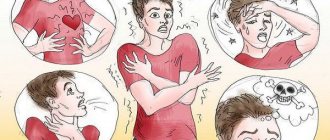What are talking in your sleep called?
Scientifically, this phenomenon is called somniloquy. A little less scientifically – dream talk. It is reliably known that such conversations last no more than 30 seconds at a time, but can occur repeatedly during sleep.
However, when studying this phenomenon, scientists noticed that up to a quarter of such episodes occur during the REM sleep phase, and the rest, respectively, during deep sleep.
By the way, these conversations can be both a monologue and a dialogue. Such a person does not remember the conversation itself the next morning. In rare cases, a person may speak a foreign language. This is usually explained by the fact that he grew up in a different language environment in very early childhood.
Baths
For a sound sleep you need a warm bath. Its temperature should be no more than 38 degrees. You can add a few drops of oil to the water - chamomile, mint, lavender. You should not use only citrus fruits, as they have a tonic effect. The procedure is performed in no more than 20 minutes. After this you can go to bed.
Why do people talk in their sleep
Scientists cannot give an exact answer to this question, but they suggest that dream-speaking is often associated with past experience.
This phenomenon is usually common among children and teenagers - more than half of children aged 3 to 10 talk in their sleep. Typically, children begin to develop somniloquy after strong experiences or vivid episodes in life. Doctors believe that in this case, talking in a dream does not indicate any violations. This feature can be inherited.
The vast majority of people stop talking at night when they reach puberty. And only a few, about 5%, retain this feature. Episodes of somniloquy can be repeated every night, or they can occur rarely, for example, after a busy day at work or severe stress.
Help and treatment
In most cases, no serious treatment is required.
Drug treatment is used if night conversations appear in adulthood, the person experiences sleepwalking, and the muttering is accompanied by swearing or nightmares.
Treatment is mainly outpatient, with inpatient treatment only in severe cases. The drugs used are antipsychotics, tranquilizers, and antidepressants.
Psychotherapy sessions are conducted with the patient.
In some cases, cognitive cognitive therapy, gestalt therapy, and hypnosis are used.
All this allows us to identify and overcome the causes of night monologues.
Why are talking in your sleep dangerous?
In themselves, such conversations are harmless, but there are several disadvantages. First, as we have already said, somniloquy can scare the neighbors.
The second sleep disorder may be a complication of another sleep disorder, such as REM sleep disorder. This is when people repeat in reality some movements from their dreams, they can twitch, moan, scream in their sleep. This may be a symptom of somnambulism, or, in other words, sleepwalking. And also nightmares, yes, this is also a violation. Or a sleep-related eating disorder.
Scientists from the University of Helsinki, Finland, note that there is reason to talk about common genetic causes of some sleep disorders. In the study, they studied 815 pairs of identical and 1,442 pairs of fraternal twins and found strong correlations between sleep talking and sleepwalking, teeth grinding, and nightmares.
If a person suddenly begins to talk in his sleep as an adult, and previously somniloquy had not manifested itself in any way, this may be a sign of incipient degenerative changes in the brain, for example, Parkinson's disease or dementia. In this situation, a person should consult a doctor and undergo an examination.
This is how children suffering from neuroses feel:
- Alina, 15 years old (social phobia):
“Going to school is torture for me. In class, I feel so tense that my hands are shaking and my neck is going numb. I'm afraid that they'll ask me and the whole class will see that I'm some kind of strange, mentally ill person. I'm afraid that my head will start to shake from tension, that I will lose control of myself. I also blush, sweat, I have to dodge all the time so that no one notices my red, wet hands. I hate myself in such states! When I come home from school, I cry all the time.” - Marina, 14 years old (panic attacks):
“I’m afraid to ride the subway, I’m afraid to sit in class, I’m afraid of situations that are difficult to get out of immediately. My heart starts beating fast, my hands go numb, I’m out of breath. I am afraid that something will happen to me, that I will fall, lose consciousness, and also look strange. I'm afraid of losing control of myself." - Pavel, 14 years old (obsessive-compulsive disorder, OCD):
“I hate my life, I hate doing homework. I'm afraid that I'll miss something important while doing homework or going about my day, so I have to repeat information over and over again in my head until I feel like I've got it all figured out. It takes a lot of time, I get tired of it and annoyed with myself. When I open a textbook, I have to be sure that I haven't wrinkled the page, otherwise I'll have to iron it a few times afterward. Sometimes I don’t notice how I’m tearing out my hair with all this. And that's not it…". - Larisa, 13 years old (social phobia):
“I’m ashamed, and I don’t know what can help me. I am afraid of situations from which there is no quick way out. In class, on public transport, I start to want to go to the toilet, I’m afraid that I won’t be able to stand it, I’ll lose control and everything will happen to me in front of everyone. I'm tense all the time, I sweat from tension, it's uncomfortable for me to walk with circles under my arms. I put napkins there so that they are not noticeable. I sit in class and count down the minutes. The closer you get to the end, the easier it gets. I go to the toilet many times before school to hope that I won't feel like it at school, but it doesn't help. My parents, seeing this, get annoyed with me. I feel abnormal. I can’t tell anyone about this.”
Prerequisites for the emergence of psycho-emotional stress and the formation of neuroses in adolescents in modern society:
- Adolescence is characterized by powerful hormonal changes, which in the psychological sphere manifest themselves in the form of increased anxiety, irritability or a tendency to a sad mood, and in the physical sphere - symptoms of vegetative-vascular dystonia (VSD).
- During adolescence, a set of personal values and goals is formed that are intended to become a support in future life. But, unfortunately, in modern society the formation of personality is forced to occur in conditions of contradiction, duality and inconsistency of the presented value ideology. A humorous example of this: “Of course you should have your own opinion, and now I’ll tell you it!” This leads to internal and external conflicts and, accordingly, to emotional disorders and often to symptoms of VSD.
- Modern society is characterized by a high level of intolerance. There is a large percentage of people with anxiety, irritability, depression due to imbalance, unsettled life or untreated emotional illnesses, which leads to a state of intolerance. Adolescents, accordingly, are easily rewarded by adults with derogatory definitions, which contributes to the emergence of interpersonal conflicts and the formation of vulnerable self-esteem in children. In addition, in such an atmosphere, looking at dissatisfied and anxious adults, teenagers read the underlying information that the world is dangerous. And again the result is emotional disorders and symptoms of VSD.
- Children are spending more and more time on gadgets, walking and socializing less. This, on the one hand, is a prerequisite for VSD (emotions are not realized in sufficient motor activity, an imbalance of the autonomic nervous system occurs), and on the other hand, it leads to insufficient communication practice, as a result of which ordinary communication with peers in real life begins to cause anxiety.
Three common ways of developing neuroses in adolescents against the background of psycho-emotional stress and symptoms of VSD:
- Psycho-emotional stress can manifest itself as symptoms of VSD - muscle tension, trembling in the body, dizziness, a lump in the throat, shortness of breath, sweating, frequent bowel movements, the urge to urinate and other symptoms. If against this background the child begins to fear for his health, then he will develop PANIC ATTACKS or HYPOCHONDRIC NEUROSIS. If a child begins to worry about how he looks, he will develop SOCIOPHOBIA.
- Living in conditions of chronic interpersonal or intrapersonal conflicts, for which adolescents have no solution, can lead to the fact that the psyche will find a way to calm down by performing actions that are understandable to it. This is called displaced activity: in a hopeless situation, a person may begin to perform an action that is understandable to him, but not related to the current situation. This is how obsessions and various rituals are formed, that is, OBSESSIVE-COMPULSIVE DISORDER or OCD.
- Exhaustion of the nervous system against the background of psycho-emotional stress is manifested by symptoms of VSD and irritable weakness, fatigue, headaches, and sleep disturbances. There is increased sensitivity to bright light and loud sounds. This is how NEURASTENIC NEUROSIS is formed.
- Influence the prerequisites for the formation of neurosis. It is important that the hygiene of the child’s life is maintained: that after stress the child has the opportunity to recover, that he sleeps and eats enough, that there is enough physical activity, that the time spent on gadgets is limited. It is important that a child grows up in a peaceful environment, at least in a family. It is important to be consistent in offering and demonstrating good values and to be tolerant. There is no escape, but it will be very helpful for parents to balance their lives and resolve their issues so that they can be happy with their lives. We hope that your child's health can be a worthy motivation to set aside time and other resources for yourself to resolve issues of your own mood.
- Contact a specialist to solve the neurosis that has arisen in the child. Here you can get help in the form of individual consultations, and we have also developed a group program especially for teenagers. This is how they speak about the help received at our center.
- Learn to live an active life correctly.
How to help a teenager?
In addition to neuroses, other disorders of the neurotic level can be observed in adolescence: other emotional disorders and adaptation disorders and decompensation of personal characteristics in the form of various psychopathic behavior.
Is there any meaning in the words of the sleeping man?
Many people think that what a person says in a dream is his secret thoughts and desires, as if it works, like with that proverb about a drunk who has everything on his tongue. Now, this is not true. According to the International Classification of Sleep Disorders, talking does not reflect previous behavior or memories.
Not only is up to 60% of what is said incomprehensible, but the rest simply doesn’t make any sense. It’s as if a neural network randomly formulated phrases according to the syntactic norms of the language.
In any case, dream speaking has so far been studied very poorly; there are real fears that scientists will soon refute everything that they have claimed before.
Honey mixtures
Honey is an excellent sleeping pill; various mixtures are created with it that have a positive effect on the condition. The classic is milk with a spoon of honey before bed. But other recipes are also suitable:
Regular use of such mixtures restores sleep and calms you down. The person will sleep peacefully and therefore there will be less risk of nightmares and conversations at night.
How to stop talking in your sleep
- How to avoid talking in your sleep? First, before going to bed, you need to completely relax. You can reduce emotional stress through meditation or yoga. Try to avoid bad news, scary movies and books before going to bed. Don't forget to ventilate your bedroom before going to bed. Taking a hot bath before bed is also a great way to relax.
- Do not underestimate physical exercise during the day, it helps improve the quality and duration of our sleep. Just don't start exercising right before bed. An evening walk in the fresh air also has a positive effect on the quality of sleep.
- Before going to bed (2-3 hours before bedtime), avoid heavy, spicy and fatty foods, alcohol and caffeine.
If the above recommendations do not help, consult your doctor.
Was there anything you didn’t like about this article, do you have anything to add, or did you find an error? Be sure to write about it in the comments. Not a single comment will be left unattended!
Article updated 05/12/2021
Herbal infusions
The best recipes are:










